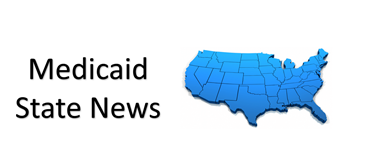MM Curator summary
Legislation to refashion Arkansas’s exchange-subsidy-based Medicaid expansion program is moving forward.
The article below has been highlighted and summarized by our research team. It is provided here for member convenience as part of our Curator service.
A retooling of Arkansas’ private-option Medicaid expansion program was sent by a committee to the House floor Tuesday, setting the legislation up for a potential final vote as early as next week.
Senate Bill 410, dubbed the “Arkansas Health and Opportunity for Me Act,” proposes to scrap the work requirement established by Gov. Asa Hutchinson and lawmakers in 2017 and replace it with a new system that incentivizes work and education with access to government-subsidized private health plans.
The plan would require a new federal waiver from President Joe Biden’s administration in addition to approval from state lawmakers. Hutchinson expressed his support for SB410 at a rollout last month.
The sponsors of the legislation said Tuesday that the bill appeared to have a favorable path forward after clearing the House Public Health, Welfare and Labor Committee, where lawmakers favorable to other Medicaid models grilled the sponsors and Department of Human Services Secretary Cindy Gillespie.
“I think this was the biggest hurdle that we had,” said Rep. Michelle Gray, R-Melbourne, the House sponsor of SB410.
After several hours of debate that stretched into the evening, the committee voted 11-7 to send the bill to the House. Gray said a floor vote was expected Monday.
One of the opponents of the bill, Rep. Josh Miller, R-Heber Springs, argued that the proposed program would continue a practice of rewarding poor people who do not work with higher-quality private insurance plans, while medically frail Arkansans are kept on a traditional Medicaid fee-for-service model. Miller has proposed alternative legislation that would move all of the state’s Medicaid recipients to fee-for-service.
“We have a two-tiered system in our Medicaid program right now,” Miller said. “And it’s just going to get worse if we keep this private-option, private insurance model in place.”
Under SB410, low-income Arkansans who qualify for Medicaid expansion would be eligible for subsidized private health care plans if they meet criteria for work and education set by the Human Services Department, or by participating in certain programs tailored toward their health needs, such as prenatal checkups for pregnant women. Enrollees who fail to meet the requirements could be moved off the private plans to a fee-for-service model.
Eligibility for the Medicaid expansion program is set at 138% of the federal poverty level, which is $17,774 for a single adult or $36,570 for a family of four. More than 300,000 Arkansans are enrolled in the program, according to the Human Services Department.
Proponents of the fee-for-service model argue that it would cost the state less money to operate, saving about $180 million over five years, according to Human Services Department estimates.
Gillespie and the bill’s sponsors, however, said those same projections estimate that a fee-for-service model would also reduce federal spending on Arkansas’ Medicaid expansion program by $3 billion over five years, taking with it $310 million in state and local tax revenue, more than enough to offset savings.
The higher costs of the private health care plans also help prop up hospitals and medical providers in the state by reimbursing them at higher rates than traditional Medicaid.
“I can promise you, my hospital in Izard County — it’s on the brink of closing anyhow — will close” if the private-option is ended, Gray said.
Gillespie said that other proposed revisions to the program, such as requiring enrollees earning over the federal poverty level to participate in cost-sharing plans, are aimed at making people who benefit from the program more accountable for their health and economic well-being.
“The program’s been around now for seven years,” Gillespie said.
“It is very much a part of the health care infrastructure and the financial infrastructure of this state. … We’ve really been working on how do we take this and use this now to drive health improvement.”
SB410 did not draw opposition from any of the House Public Health committee’s Democrats on Tuesday. Democrats had traditionally supported the Medicaid expansion program, which was started under then-Gov. Mike Beebe, a Democrat, in 2013.
Under Hutchinson and the Republican-dominated legislature, Arkansas sought and received approval from then-President Donald Trump’s administration to add a work requirement to the Medicaid expansion program in 2017. That requirement was later struck down by the courts.
Biden’s administration, however, has signaled to the states that it will not permit traditional work requirements such as those sought by Arkansas.

Clipped from: https://www.nwaonline.com/news/2021/mar/24/medicaid-bill-moved-to-house/
